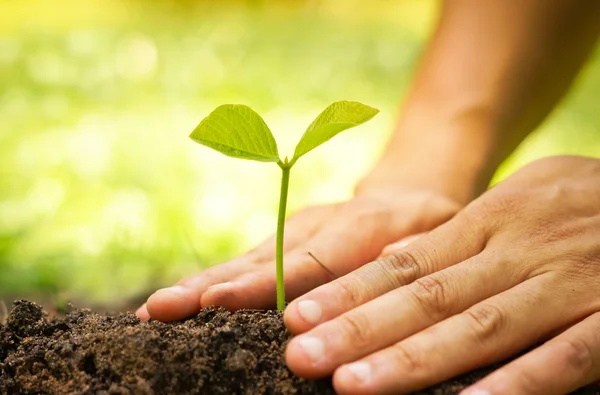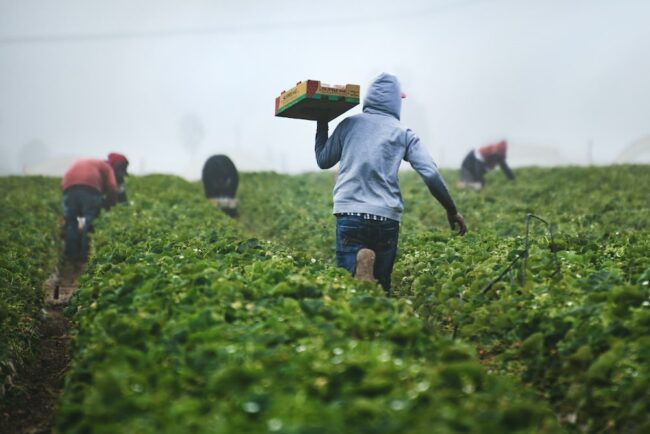Decades of intensive agriculture in Britain caused their arable soils to lose more than half of their carbon from the overall soil structure. Also, the country faces with downhill in the numbers of agricultural species. Thus, the revolution in growing food is a matter of life. Sustainable agriculture in growing food is a must.
The starting point for changing the way how growing food is done is a new Environmental Land Management Scheme (ELMS) in England. ELMS are one of the alternatives to replace Europe’s Common Agricultural Policy after Brexit.
There are three plans under ELMS: Sustainable Farming Incentive, Local Nature Recovery, and Landscape Recovery. All of them are aimed at cutting emissions, increasing biodiversity, and restoring landscapes. Great Britain is the country that is at a top of the list of regions with overconsumption of natural resources.
Part one of the agricultural revolution: Cutting overconsumption
Overconsumption means consuming resources to a degree that they can’t replenish nor sustain themselves as much as they are consumed. In cases of overconsumption, ecosystems can’t cope with that amount of resource extraction. The result is biodiversity loss and the decline of life in nature. Thus, ELMS provides local nature and landscape recovery plans
One of the measures the sustainable farming incentive plan provides is to pay farmers £2 billion a year to turn soils into carbon sinks.

A carbon sink is anything that absorbs more carbon from the atmosphere than it releases. It might be plants, the ocean, or soil. With good planning, those carbon sinks may give a serious contribution to lessening carbon emissions from the burning of fossil fuels.
That way, the revolution in growing foods in the UK might help the country to meet its climate commitments, and provide food in a more sustainable way. The last available data is that in 2020 agriculture’s part in the UK’s greenhouse gas emissions was 11%. If the government incentives plan succeeds, soil health would be improved so the other environmental goals can be met. The government analysis says soil health is the key.
Growing food needs healthy soil, water, and air
As the plan is, ELMS should be the main mechanism for reducing greenhouse gas emissions from the agriculture sector. But above all, besides improving soil health, ELMS incentives should improve biodiversity and water quality.
ELMS plan on Sustainable Farming Incentive will pay farmers if their agricultural production’s environmental benefits are beyond minimum legal requirements. The farm size is not a condition for using the incentives as it was in European Union’s Common Agriculture Policy. ELMS will also pay for local initiatives that encourage collaboration between farmers.
The Landscape Recovery part of the ELMS will pay for initiatives in restoring famous English peatlands.
Big companies will take part in sustainable growing foods
The ELMS system, won’t be fully in place until 2028, even though the pilot programs already took part.
State-funded strategy is only a part of the restoration of British biodiversity and agriculture revolution.

The project of revival of agriculture also encompasses the big companies operating in the country such as Nestle, McCain, PepsiCo, and Waitrose. These companies also have projects to push forward regenerative agriculture and sustainable practices of growing food.
Nestle, for example, has set a goal of regenerative methods in delivering 20% of its key production ingredients by 2025, and 50% by 2030.
The food-producing giant plans to achieve the goals with enticing offers to the farmers who produce milk and other goods Nestle traditionally buys if their grasslands store more carbon. They plan to insist on trees planted in pastures. Using of organic fertilizers and increasing crop rotations, are implied.
Revolution started with the king
NGOs also have a part in this overall initiative to improve nature and build climate resilience.
The sustainability NGO, Forum for the Future, has an idea for all involved parties in the food-producing chain to bring together a new partnership. They already make pilot programs and make an analysis of the initial effects. The NGOs pilots could take six to seven years. The results of the pilots will shape their next steps. And, those steps in agriculture improvement must be big since the alarm is already on.
Earlier this year, the then Prince of Wales, now King Charles, asked companies to form an agribusiness task force as part of the Sustainable Markets Initiative. He launched this Sustainable Markets Initiative with the World Economic Forum. The aim of the initiative is to create a “scalable value chain blueprint”, and the lessons learned in one crop need to transfer to the others.

